

Article fait par :claude Balmefrezol
Mis en ligne le

 |
| BB55 (source Internet ) |
Introduction
The USS NORTH CAROLINA class (BB55 and BB56 USS WASHINGTON )were the first battleships built after the Treaty of Washington This class to not exceed 35,000 tons but she has a more powerful main battery, strong anti-aircraft armament, and excellent fire control.
During the years 1937 / 1938 the U.S. began the construction of two new battleships and the BB 55 BB 56, which according to existing treaties limiting naval armaments (London and Washington) should replace the 33 AA and BB 34 and with no Does not officially exceeded the limit of 35 600 tonnes
They were armed with nine 16-inch guns of 406 mm or as the Japanese. First buildings of the new generation of American battleships they managed to keep moving back to the propulsion steam turbines and making extensive use welding
They were followed by four battleships of the South Dakota class that was similar but more sophisticated.
The battleship North Carolina BB55.
Preview In 1919 program the Kell of the 43,200-ton USS North Carolina (BB-52) classSouth Dakota was laid on January 1920 at the Norfolk Navy Yard, Portsmouth, Virginia. The ship was suspended in February 1922, under the terms of the Washington Naval Limitations Treaty, and construction was later cancelled. North Carolina was stricken from the Navy List and sold in October-November 1923. She was subsequently scrappled
This ship is part of a series of two battleships which also includes the USS Washington BB 56. Both buildings were completed in 1941 and were the last true models pre-war
They were the first U.S. battleships to come into service since the USS West Virginia in 1923 and was fully comply with the Treaty of Washington
In addition, this building was built taking into account the dimensions imposed by the Panama Canal. It was a victory over the engineers who managed to build a ship taking within the limits of the Treaty but could navigate over 30 knots
To stay within the main battery normally scheduled for quadruple turrets of 14 inch or 357 mm will be tripe but with 16 inch 406 mm
Why this change? Because the Japanese were out of the treaty and not the most respected from 1936 among other
Description
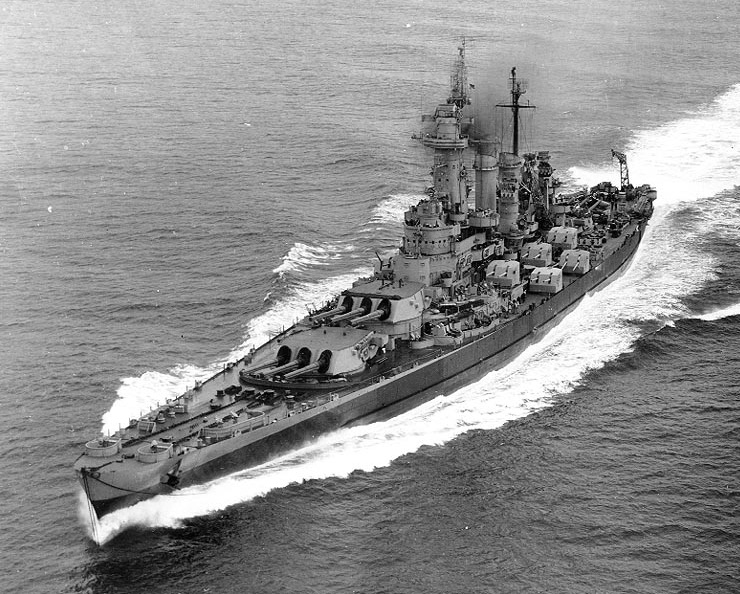 |
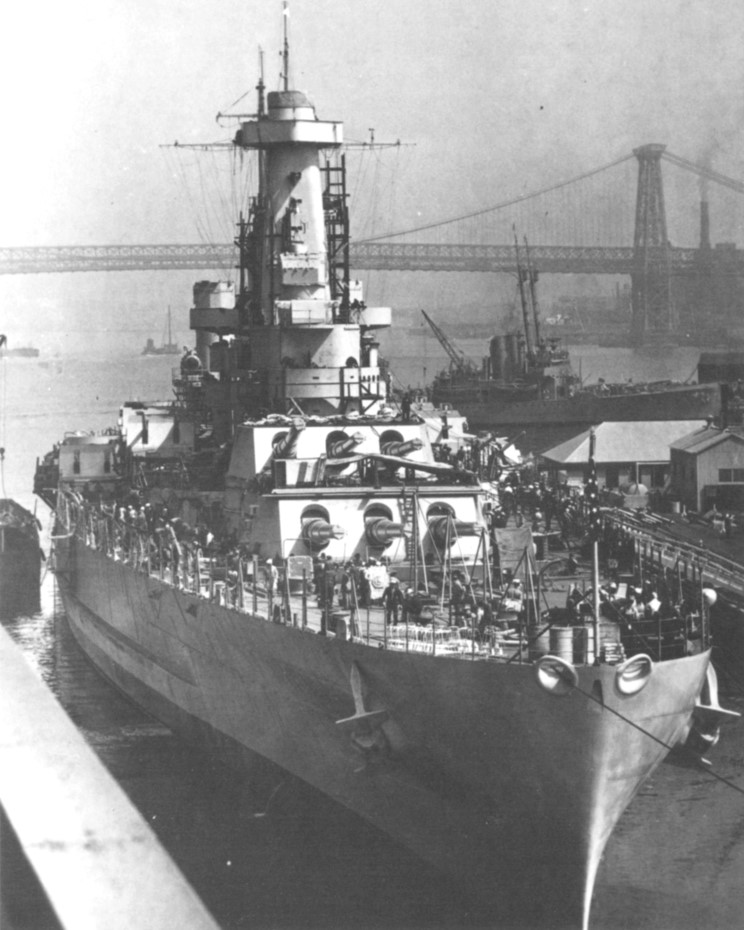 |
| USS WAshington | USS North Carolina |
Since the beginning of the XIX° siecle US Navy has favored staying power and fire power over speed. But with this class od battleship the speed increase since 27 knots (50 km/h) versus the 21 knots (39 km/h) of the pre-treaty battleship as Colorado Class
The class was completely different. New features included a massive columnar mast replacing the familiar "cage" mast, main armament in two triple turrets forward, one aft, and dual-purpose secondaries along the sides of the superstructure.
But in the changes can found also in the entrails of the vessel with . It his an analogic system
more accurate than the mechanical computers Dreyer or Ford used since then
He allow the ship to maintain a constant fire control solution in all conditions
His sister ship USS Washington sank the IJN Kirishima during the battle of Guadalcanal ,with this fire control system demonstrating the accuracy of fire control radar in a night fight He wad the one of few WW 2 battleship to sink an enemy battleship in combat .
But to rest in the limitation of the treaty of Washington the hull must me sold and he has severe vibration at high speeds and had to be limited to about 24 knots (44.45 km/h) for much of their service lives
Vibrations are non friend with the rangefinders and radar( problem of propellers ? )
Another, more serious, weakness of the class was his bad nautical qualities and his His armour plating cannot resist at a 406 mm hit
This problem was rectified in the following BB classes South Dakota and Iowa
Despite this problems he was powerful armed with an important AA armament
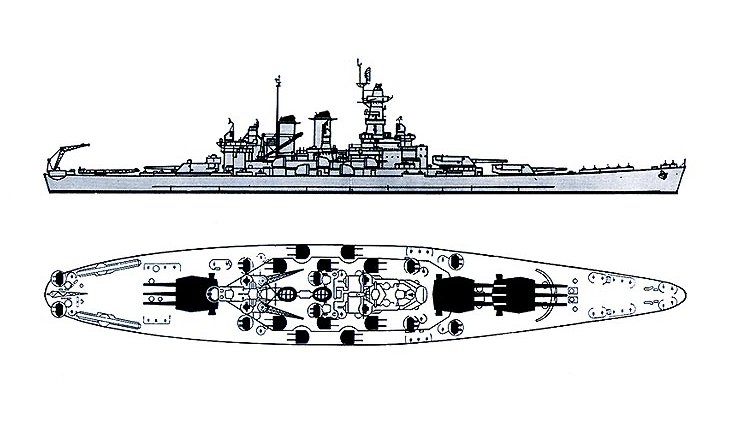 |
| Source Internet |
History
.jpg) |
| Source Internet |
Authorized by an act of Congress on June 3rd 1936, the keel of BB-55 was laid down at the Brooklyn Navy yard during the Navy Day on October 27th 1937
At this time the US Navy has a hold fleet almost obsolete despite few new units like cruisers and destroyers
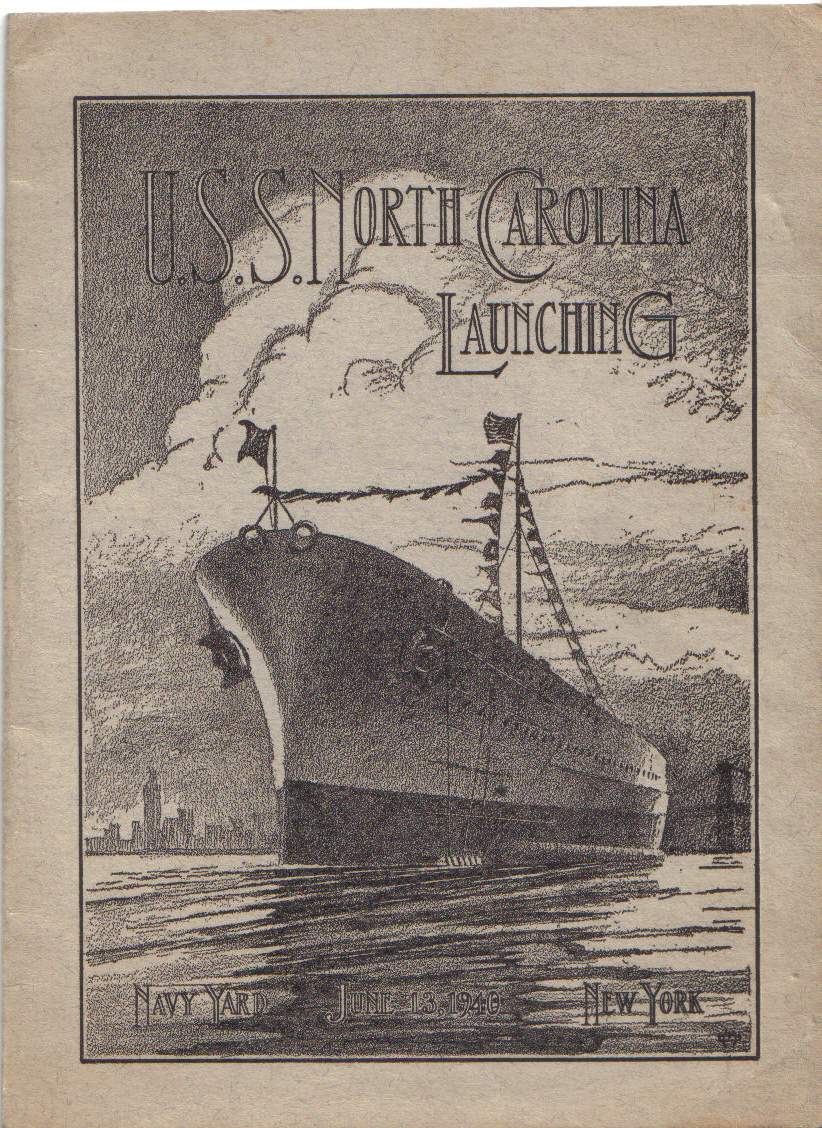 |
She was the first battleship to be constructed in sixteen years. She became the first of ten last battleships built by the US Navy
Affer the launcinf for this new big unit we found the USS Washington(BB 56), of the same class ,following by the South USS class with the SOUTH DAKOTA (BB 57),USS INDIANA (BB 58), USS MASSACHUSETTS (BB 59), USS ALABAMA (BB 60) AND AT THE END IOWA CLASS with the USS IOWA (BB 61), USS NEW JERSEY (BB 62),USS MISSOURI (BB 63), and finally the USS WISCONSIN (BB 64).
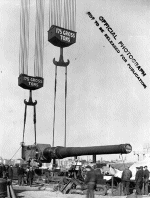 |
.gif) |
| 406 MM (Internet ) | 406 MM (Internet ) |
On 13 June 1940, daughter Governor of North Carolina Clyde R. Hoey, Isabel,baptise with the traditional bottle of champagne the ship and on April 9th 1941,the ship was commissioned by Frank Knox Secretary of the Navy
At the time of her commissioning on she was considered the world’s greatest sea weapon. Armed with nine 16-inch/45 caliber guns in three turrets and twenty 5-inch/38 caliber guns in ten twin mounts, NORTH CAROLINA proved a formidable weapons platform. Her wartime complement consisted of 144 commissioned officers and 2,195 enlisted men, including about 100 Marines.
But ship was not built in a day. And for the BB 55 three years and eight months went into her construction Chooses change in the World
When USS NORTH CAROLINA, was commissioned Hitler was the Leader in Europe after the Fall of the France and he prepare the Invasion of the South European countries and after USSR and in the Far East, Japan was threatening further aggressive moves in Southeast Asia.
After commissioning, USS North Carolina had an unusually extensive training during several months. During this training the ship receive the nickname of Showboat in reference of colourful river steamer in a popular Broadway musical.
The BB55 returned to her building yard on December 7th 1941 After Pearl Harbour on spring 1942 he was send to Pacific Ocean
The USS North Carolina at war (Majors action )
.jpg) |
| Source Internet |
During WW2 USS NORTH CAROLINA participated in every major naval offensive in the Pacific area of operations and earned 15 battle stars.
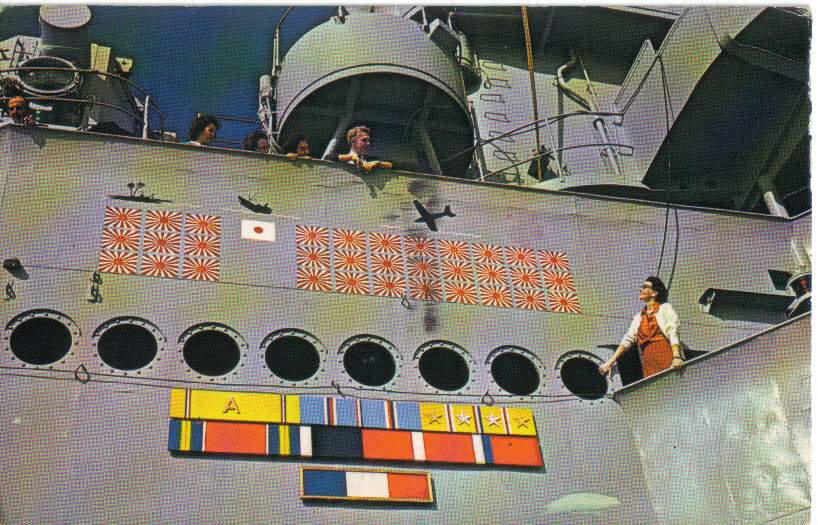 |
| Decorations (Source Internet) |
Battle of Guadalcanal
The Battle of the Coral Sea in May of 1942 and the Battle of Midway in June were the first majors battle of the sea battles in the PTO
They thwarted two major offensive of the Imperial Japanese Army and Navy to gain control of Port Moresby, New Guinea and Midway,
This American successes mostly Midway block the Japanese forces so force the Enemy on to choose and other target and the logical choice was the invasion of one of the southernmost islands in the Solomon’s, Guadalcanal.Why Guadalcanal ?
Japanese have highly fortified port of Rabaul at mid-way between the new Allied bases in the New Hebrides and New Caledonia and Guadalcanal was, with a concurrent occupation of Port Moresby, a significant stronghold for their thrust toward Australia then New Zealand.
Taking Guadalcanal from the 2 protagonists a jumping off point for the action in PTO
For US Navy Vice Admiral Frank J. Fletcher, commander of the aircraft carrier forces during the battles of Coral Sea and Midway was selected to take tactical command of the Expeditionary Force and Rear Admiral Richmond K. Turner took command of the Amphibious Force,
Guadalcanal was the first major amphibious operation and all the future operation would be have always this a pivotal function since Okinawa.
The lands forces were provide by the 1st Marine Division of the Major General Alexander A. Vandegrift
On morning of August 7th 1942 the landing begin on Guadalcanal Tulagi and Tanambogo-Gavutu under the cover of the fleet with three aircraft carriers USS SARATOGA, ENTERPRISE, and WASP with their escort of cruisers and also the USS NORTH CAROLINA.
On the 8th began the Japanese attacks . We are at the beginning of a hard battle-on land air and sea ) marked by tenacity, determination, ferocity and, luck amongst changing tactics due to the advent of radar and the technological advances in aircraft, ships and weapons
Battle of Savo Island on august 9th Battle of the Tenaru River on the 21st
In the Battle of the Eastern Solomon’s Islands in August 24th and 25th 1942, the Battleship has his baptism of fire and his anti-aircraft barrage helped save the carrier ENTERPRISE, thereby establishing the primary role of the fast battleship as protector of aircraft carriers for the little history the smoke from her antiaircraft batteries was so dense that ENTERPRISE called on a tactical radio frequency to inquire if the ship had been damaged.
On September 12th and14th during the land Battle of Bloody Ridge in support of the land action Japanese submarine I-19 sunk USS WASP
After he attack the USS HORNET formation sinking the destroyer USS O'BRIEN and hit the USS NORTH CAROLINA killing 5 sailors After temporary repairs in New Caledonia, the ship go to Pearl Harbor to be dry docked for a month for repairs to her hull and to receive more antiaircraft armament
Without the BB55 battle continue on October 1942 with the Battle of Cape Esperance (11th and 12th )the land Battle of Henderson Field(23rd to 26th ) and the sea Battle of the Santa Cruz Islands on the 26th
In November was a cruiser night action off Guadalcanal on 12th/13th a battleship night action on 14th/15th and the night surface Battle of Tassafaronga on the 30th
On February 9th 1943 Guadalcanal battle ended.
After he support action against Tarawa and action on Gilberts campaign preparing the assault on the Marshall’s Island and on January 1944 he joint the TF 58 of Rear Admiral Mitscher.
Battle of New Guinea followed (13 April – 24 April 1944)
.jpg) |
| Exploit |
He support the reconquest of the Hollandia or Jayapura followed by a raid upon Truck on April 29th and 30th . At Truk, the Kingfisher of the North Carolina rescue American aviator downed off the reef. After North Carolina destroyed coastal defense, antiaircraft batteries, and airfields at Ponape
After repair he participle to the battle of Marianne Saïpan and Battle of Philippine sea
and Iwo Jima to support supporting the invasion February 19th to 22nd 1945.
Invasion of Okinawa (April 1945)
In coincident with the air offensive of Task Force 58 against Mainland Japan,
American forces prepare the attack over Okinawa, where the initial landings occurred on April 1st
3 Marine Divisions (1st 2nd and 6th ), and 4 Army Divisions (7th 96th 77th and 27th ) land on this island for the major and last amphibious operation on PTO ,
Why Okinawa ?
Okinawa was needed because it was best located to support the planned invasion of the Home Islands of Japan, and because it offered airfields and anchorages required for that purpose. Task Force 58 covered the operation, providing air support and fighter defense.
On march 24th USS NORTH CAROLINA, with other battleships, conducted a pre-invasion bombardment of Okinawa
On April 6th the USS 5 NORTH CAROLINA, was hit by a friend hit who kill 3 men
During 40 days Task Force 58 with the USS NORTH CAROLINA support actions around Okinawa During this period, hundreds of kamikaze attacks were launched against naval units and 73 ships were hit 20 were sunk or so badly damaged they had to be scuttled, and 22 were damaged and would not be repaired before the war was over.
When war ended , USS NORTH CAROLINA has lost ten men in action and had 67 wounded
NORTH CAROLINA carried out nine shore bombardments, sank an enemy troopship, destroyed at least 24 enemy aircraft, and assisted in shooting down many more. She steamed over 300,000 miles. And he was sunk for Japanese radio announcements six times
After the Japanese capitulation USS North Carolina sent Marine Detachment ashore for preliminary occupation duty in Japan until anchoring in Tokyo Bay on September 5th to re-embark her men.
.jpg) |
| Panama (internet) |
He sailed for home after a passage in Okinawa, via Panama Canal. He reach Boston on October 17th
After the War
After serving as a training vessel for midshipmen, in Caribbean sea USSNORTH CAROLINA was decommissioned 27 June 1947 and placed in the Inactive Reserve Fleet in Bayonne, New Jersey, for the next 14 years until the 1958 announcement of her impending scrapping led to a state wide campaign by citizens of North Carolina to save the ship from the scrappers torches and bring her back to her home state. The Save Our Ship (SOS) campaign was successful and the Battleship arrived in her current berth on 2 October 1961 and was dedicated as the State's memorial to its World War II veterans on 29 April 1962.
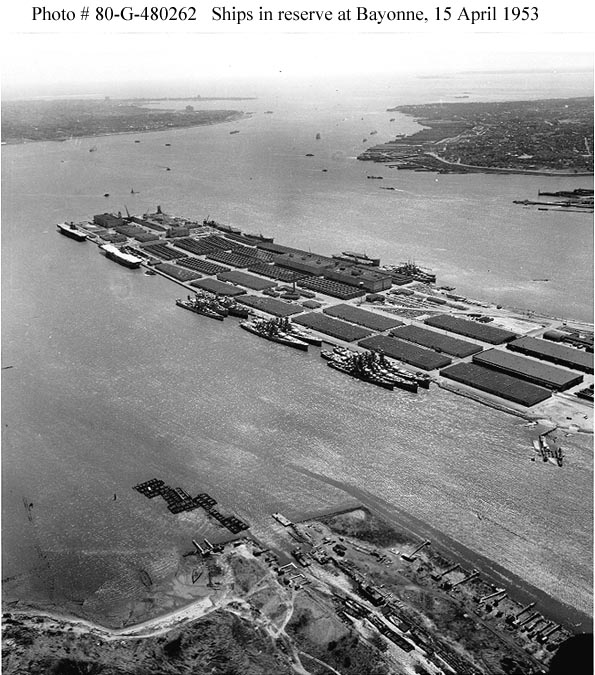 |
He currently as a Museum at Wilmington North Carolina as Battleship Memorial.
Specifications
Class North California
Hull number BB 55
Displacement: 35,000 t
Complement: 1,880 officers and men
Length:222.1 m
Beam 33.0 m
Draught 8.1 m
Speed: 28 knots (51.856 km/h)
Armament:
Main 9 × 16 inch (406 mm) guns,
20 × 5"/38 (127 mm) dual-purpose guns,
16 × machine guns; as first commissioned; soon removed and replaced by more and more 20 mm and 40 mm rapid-fire anti-aircraft Heavy Machine Gun .
Aircraft carried: 3 kingkisher
Aviation facilities: 2 trainable catapults on the fantail
Radars
CXAM 1 RADAR
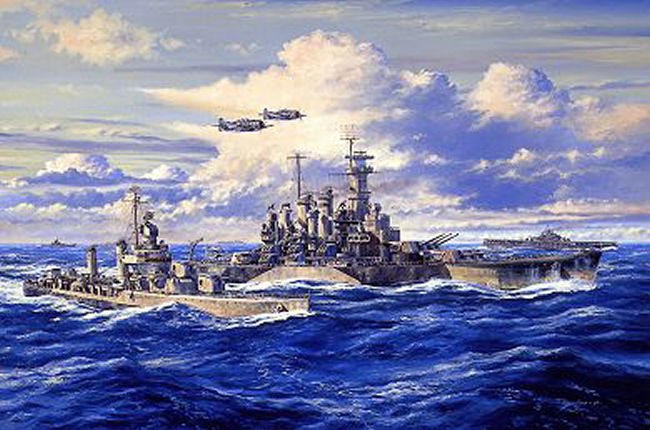 |
| Source Internet |
Walk Around HERE